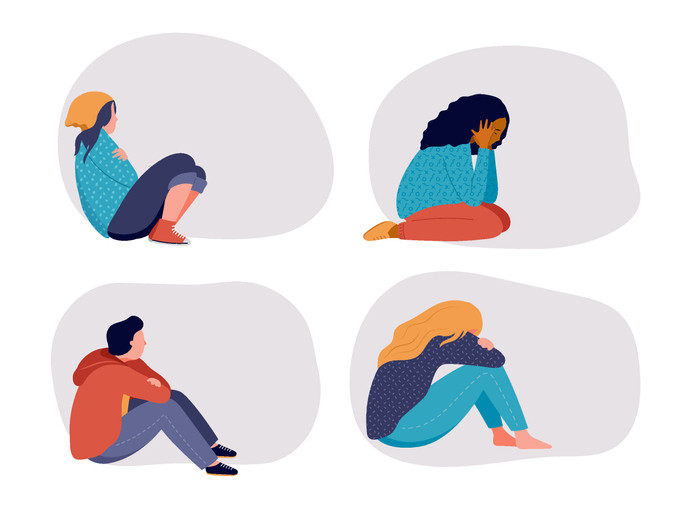The mental health crisis among children and teens: How parents can help

We are in the midst of a pediatric mental health crisis — and parents need to take action.
Over the past couple of years, the pandemic has not only killed hundreds of thousands; it has also shut us inside, cut off social contacts, taken parents out of work and children out of school. The consequences have been tremendous. And one of those consequences is that we are seeing alarming amounts of anxiety and depression in our children and teens.
A national emergency among children and teens
In the fall of 2021, the American Academy of Pediatrics along with the American Academy of Child and Adolescent Psychiatry and the Children's Hospital Association declared a national emergency in child and adolescent mental health. They called for increased funding for mental health resources, as well as other actions, including more integration of mental health care into schools and primary care, more community-based systems to connect people to mental health programs, strategies to increase the number of mental health providers, and ensuring that there is insurance coverage of mental health care.
These are all necessary, and efforts to ensure them are ongoing. But while we work to build mental health care systems, there are things that parents can do to help their children through this crisis.
Mental health is just as important as physical health
First and foremost, we must understand that. If a child has a fever or a persistent cough, parents react — they pay attention and reach out for help. But if a child seems sad or irritable, or less interested in activities they used to enjoy, they tend to think of it as a phase, or teen angst, or something else that can be ignored. The mental health of our children is crucial. Not only does mental health affect physical health, but untreated mental health problems interfere with learning, socialization, self-esteem, and other important aspects of child development that can have lifelong repercussions. And for some children, untreated mental health problems lead to suicide.
So pay attention, and take what you see seriously. If your child is showing signs of anxiety or depression, call your doctor. Don't put it off. If your child talks about harming themself or others, get help immediately, such as by going to your local emergency room. In this situation, it's better to overreact than underreact.
Create rituals of communication and safe spaces to talk
It's easy to lose connection with our children, especially our teens. Whether it's family dinner, family game night, talking on the ride to school, or a nightly check-in before bed, having regular times to ask open-ended questions and to listen to your children is important.
Make sure your child has downtime
We all need this, and children particularly need it. Be sure they aren't overscheduled; make sure that there is time for them to do things they enjoy.
Encourage healthy media habits
One of the things kids enjoy these days is being on their devices, which can be fun and connect them to friends, but can also contribute to problems with mental health. Talk to your child about how they use media. Common Sense Media has a wealth of useful information.
Make sure your child is getting enough sleep — and some exercise
Both are very important for mental health as well as physical health. Here are tips to help your child get the sleep they need. And even short bursts of exercise can lessen anxiety.
Keep in touch with teachers, coaches, and other adults in your child's life
Not only may they have information about your child that you need, but they can also play an important supportive role. Open lines of communication with them can make a difference — and help to create community, which we all need, especially now.
Try to make your home a judgement-free safe haven
This doesn't mean you can't and shouldn't have expectations about behavior or grades. But you can have expectations without judgment; you can and should let your child know that you love them no matter what, that they can say what they feel, and that you will always help them. Do your best to listen more than you talk; be empathetic and forgiving. To be genuine about that, you will need to be empathetic and forgiving toward everyone, including yourself.
Pay attention to your own mental health
Children pay more attention to what parents do than what they say. If you are clearly struggling with anxiety or depression, and aren't doing anything about it, that sends the wrong message to your children. It also makes it hard to be a good parent.
If we take care of each other and ourselves, we can weather this storm.
Follow me on Twitter @drClaire
About the Author

Claire McCarthy, MD, Senior Faculty Editor, Harvard Health Publishing
Disclaimer:
As a service to our readers, Harvard Health Publishing provides access to our library of archived content. Please note the date of last review or update on all articles.
No content on this site, regardless of date, should ever be used as a substitute for direct medical advice from your doctor or other qualified clinician.















